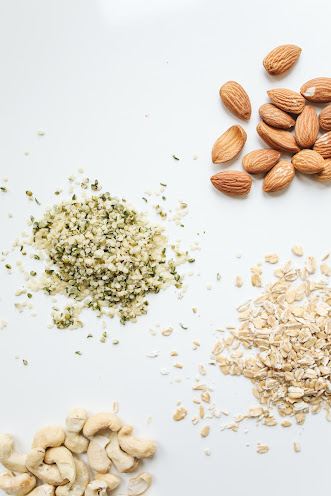Eating a Balanced and Nutritious Diet: Nourishing Your Body for Optimal Health
In today's fast-paced world, maintaining good health is more important than ever. One of the cornerstones of a healthy lifestyle is adopting a balanced and nutritious diet. What we eat has a profound impact on our physical well-being, energy levels, and overall quality of life. Let's delve into the importance of eating a balanced and nutritious diet and explore some practical tips to help you achieve it.
The Importance of Balanced Diet:
A balanced diet involves consuming a variety of foods from different food groups to ensure that your body receives a broad spectrum of essential nutrients. These nutrients include carbohydrates, proteins, healthy fats, vitamins, minerals, and dietary fiber. Each nutrient plays a unique role in supporting various bodily functions, from energy production to immune system maintenance. Striking a balance between these nutrients is crucial for optimal health and well-being.
Key Components of a Nutritious Diet:
1. Fruits and Vegetables:
These nutrient-rich powerhouses are packed with vitamins, minerals, antioxidants, and dietary fiber. Aim to fill half your plate with a colorful array of fruits and vegetables to provide your body with the vitamins it needs to thrive.
2. Whole Grains:
Opt for whole grains like brown rice, quinoa, whole wheat bread, and oats. These complex carbohydrates provide sustained energy and are a great source of fiber, which aids in digestion and helps maintain healthy cholesterol levels.
3. Lean Proteins:
Incorporate lean protein sources such as chicken, fish, eggs, beans, and tofu. Protein is essential for tissue repair, muscle growth, and immune function.
4. Healthy Fats:
Include sources of healthy fats like avocados, nuts, seeds, and fatty fish. These fats support brain health, promote heart health, and aid in the absorption of fat-soluble vitamins.
5. Dairy and Dairy Alternatives:
Choose low-fat dairy or dairy alternatives like Greek yogurt and almond milk for their calcium content, which is essential for strong bones and teeth.
6. Portion Control:
Pay attention to portion sizes to avoid overeating. A balanced diet isn't just about what you eat, but also how much you eat.
Plan your meals in advance to ensure you're getting a variety of nutrients throughout the day. Include a mix of protein, carbohydrates, and fats in each meal.
Choose nutrient-dense snacks like fruits, vegetables, and nuts instead of reaching for sugary or processed options.
Drinking water is essential for digestion, circulation, and overall well-being. Aim to drink plenty of water throughout the day.
Limit Processed Foods:
Minimize your intake of processed foods high in added sugars, sodium, and unhealthy fats. These foods offer little nutritional value and can lead to health issues over time.
Here are some examples of healthy foods that you can include in your diet:
Fruits:
- Berries (blueberries, strawberries, raspberries)
- Apples
- Bananas
- Oranges
- Kiwi
- Grapes
- Watermelon
 |
| Variety of fruits |
Vegetables:
- Leafy greens (spinach, kale, arugula)
- Broccoli
- Cauliflower
- Carrots
- Bell peppers
- Tomatoes
- Cucumbers
 |
| vegetables |
Whole Grains:
- Brown rice
- Quinoa
- Oats
- Whole wheat bread
- Whole grain pasta
 |
| Whole Grains |
Lean Proteins:
- Chicken breast
- Turkey
- Fish (salmon, tuna)
- Eggs
- Greek yogurt
- Tofu
 |
| Eggs |
Legumes:
- Lentils
- Chickpeas
- Black beans
- Kidney beans
Nuts and Seeds:
- Almonds
- Walnuts
- Chia seeds
- Flaxseeds
- Pumpkin seeds
Healthy Fats:
- Avocado
- Olive oil
- Coconut oil
- Fatty fish (salmon, mackerel)
Dairy and Dairy Alternatives:
- Low-fat milk
- Greek yogurt
- Cheese (in moderation)
- Plant-based milk alternatives (almond, soy, oat milk)
Herbs and Spices:
- Turmeric
- Garlic
- Ginger
- Cinnamon
- Oregano
- Basil
Beverages:
- Water (stay hydrated)
- Herbal teas (caffeine-free)
- Freshly squeezed fruit juices (in moderation)
Pay attention to your body's hunger and fullness cues. Eat when you're hungry and stop when you're satisfied.
Eating a balanced and nutritious diet isn't just a short-term goal—it's a lifelong commitment to your health and well-being. By nourishing your body with a variety of wholesome foods, you're providing it with the tools it needs to thrive. Remember, small changes in your eating habits can make a big difference over time. Prioritize your health by making informed food choices and embracing the benefits of a balanced diet for a happier, healthier life.
Remember that variety is key. Aim for a balanced diet that includes a mix of different food groups to ensure you're getting a wide range of nutrients. Additionally, consider portion sizes, listen to your body's hunger and fullness cues, and try to minimize processed foods, sugary snacks, and excessive salt and added sugars. Consulting with a registered dietitian or nutritionist can provide personalized guidance based on your specific dietary needs and goals.

.jpg)


